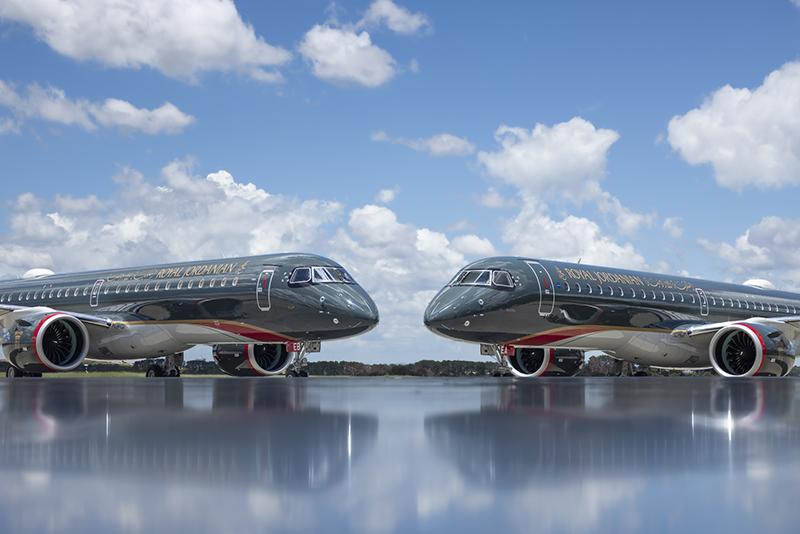
With delivery delays affecting both new Boeing and Airbus equipment, the arrival of Royal Jordanian’s fleet of Embraer E2 small narrowbody jets is one bright spot in the flag-carrier’s plans to revitalize and expand its fleet.
The Jordanian airline ordered eight E2s, equally split between E190-E2s and E195-E2s. Six of the aircraft are being provided by lessors, while the remaining two are direct from Embraer. The aircraft replace four first-generation E170s and E190s, part of the airline’s plan to bring in two new aircraft for every one that is retired.
Four E2s have been delivered so far, with the fifth scheduled to arrive this month. Two more will join the fleet in 2025, with the final arriving in 2026.
Royal Jordanian CEO Samer Majali is continuing his policy of building a route network in the Levant region, feeding passengers in and out of the airline’s Amman hub. The Levant—comprising Iraq, Israel, Jordan, Lebanon and Syria—contains around 100 million people, a good catchment area. The airline has currently halted flights to Israel due to the Isreal-Gaza war.
The Embraers are cheaper to operate on a trip-mile basis than the carrier’s Airbus A320-family aircraft. This gives Royal Jordanian the option to increase frequencies on existing routes, opening up the possibility of operating daily flights to destinations in the region, rather than just three or four times weekly.
Majali intends to operate the Embraers to connect up points in the airline’s regional route map as well as feed traffic into Amman’s Queen Alia International Airport for connections on to long-haul flights to North America and the Far East. In addition to operating into airports throughout the Levant, the Embraers also fly to areas such as Egypt and northern Saudi Arabia.
Majali has previously said that the Embraers allow Royal Jordanian to test new routes at lower cost than Airbus aircraft. And, although relatively small, the Embraers have sufficient range to fly into Europe.
Europe is home to some of Royal Jordanian’s most profitable routes, and the carrier aims to grow these again when geopolitical tension in the Middle East eases.





